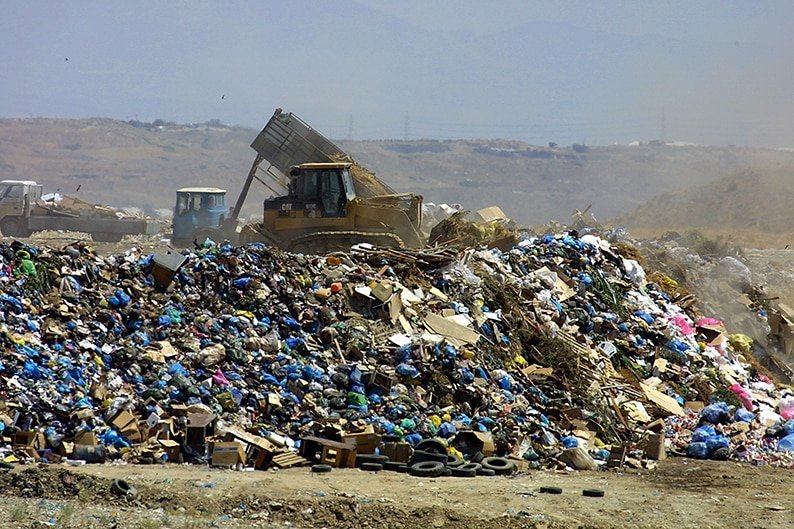Cyprus is being referred to the EU Court of Justice for failing to comply with the landfill directive and an earlier court judgement, concerning the landfills of Vati in Limassol and Kotsiatis in Nicosia.
The directive (Directive 1999/31/EC) sets requirements for landfills to prevent adverse effects on human health, water, soil and air.
“In 2013, the court ruled that the landfill of Vati in Limassol and the landfill of Kotsiati in Nicosia did not comply with the landfill directive,” the European Commission said in a press release.
“Following this judgement, the commission sent a letter of formal notice under article 260 TFEU to Cyprus on April 28, 2017. Cyprus then finally decided to stop the operation of these two landfills,” it added.
“Although no waste has been sent to these landfills for more than six years, they have still not been rehabilitated and closed as required by the landfill directive,” the commission said.
“In addition, Cyprus has postponed timetable for the implementation of the judgement several times. The landfills therefore still present a danger for human health and the environment.”
Therefore, it decided to refer this case “back to the Court of Justice of the European Union, requesting the imposition of financial sanctions.”
EU waste laws and policy have driven major improvements in waste management.
They stimulate innovation in separate waste collection and recycling, limit the use of landfilling and incentivise change in consumer behaviour. The waste framework directive (Directive 2008/98/EC) and the landfill directive (Directive 1999/31/EC) prevent and reduce the negative impact caused by the generation and management of waste.
The waste framework directive lays down basic waste management principles and establishes the EU’s waste hierarchy. According to this hierarchy, waste treatment should go along the following steps: prevention, reuse, recycling, recovery, disposal.
Landfilling is the least favourable option and should be limited to the minimum necessary. Under EU rules, waste disposal into landfills should be phased out and, where it is unavoidable, it must be adequately controlled to be safe for human health and the environment.
Under the landfill directive, only safe and controlled landfill activities should be carried out in Europe. It also aims to reduce the landfilling of waste, in particular of waste that is suitable for recycling or other recovery.
Landfilling can have dangerous effects on human health and on the environment. The generation of leachate can contaminate groundwater and methane is produced, which is a potent greenhouse gas. In addition, where recyclable waste is landfilled, materials are unnecessarily lost from Europe’s economy.
The commission has also opened two other cases against Cyprus for failing to properly manage waste. One in 2021 (INFR(2021)2217) concerning the inappropriate treatment of waste prior to landfilling in two regions, and a second one (INFR(2024)2131) concerning Cyprus’ failure to comply with the targets set by the packaging and packaging waste directive and the electrical and electronic equipment directive.






Click here to change your cookie preferences